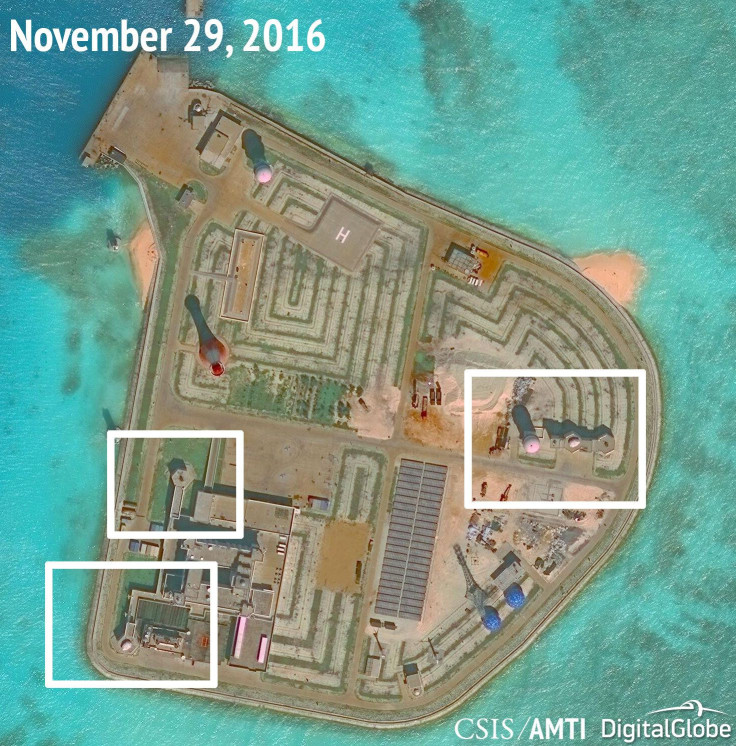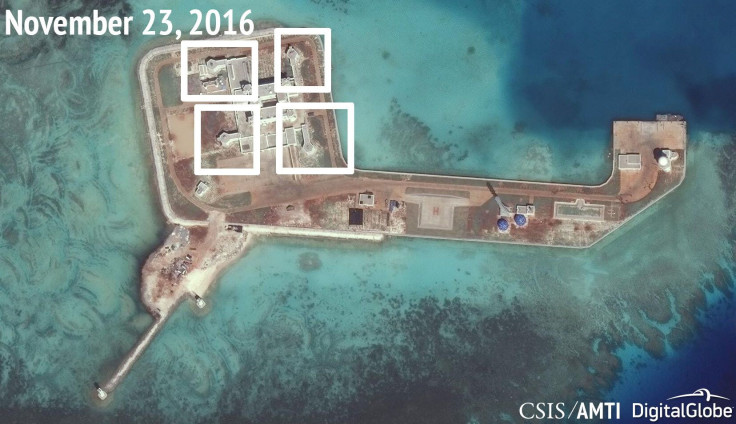South China Sea Conflict: Beijing Installing Anti-Aircraft, Anti-Missile Systems On Artificial Islands

Anti-aircraft guns and other fortifications have been installed on the seven artificial islands China constructed in the South China Sea, despite pledges from Beijing not to militarize the islands, which sit in a strategic trade route, satellite imagery showed Wednesday.
The Asia Maritime Transparency Initiative at the Center for Strategic and International Studies said it has been tracking construction on the Fiery Cross, Mischief and Subi reefs in the Spratly Islands since the summer.
"It now seems that these structures are an evolution of point-defense fortifications already constructed at China’s smaller facilities on Gaven, Hughes, Johnson, and Cuarteron reefs," the initiative said citing images taken in November and made available to Reuters.
"This model has gone through another evolution at [the] much-larger bases on Fiery Cross, Subi and Mischief reefs."
The initiative said it appears targeting radar has been installed on Fiery Cross Reef, along with defensive systems similar to those seen on the smaller reefs.
Initiative director Greg Poling said the group spent months trying to determine what the structures were.
"We can see that these are emplacements for anti-aircraft guns. If the barrel of a gun is long enough that you can see it from space, then it's pretty big," Poling told Voice of America.
Fox News reported earlier components for SA-1 surface-to-air missile platforms had been spotted at the Chinese port of Jieyang. China maintains construction on the islands is limited to defensive systems, but the initiative said it likely is a prelude to deploying combat aircraft to the area.

The Maritime Executive reported China flew a nuclear-capable strategic bomber last week over the area even though the Permanent Court of Arbitration has ruled Beijing does not have jurisdiction.
Analysts said the action amounts to a show of force in advance of President-elect Donald Trump’s inauguration Jan. 20. Trump has signaled he would take a harsher tack against China, possibly rejecting the One China policy that has guided U.S. relations with the People’s Republic since 1979.
The U.S. plans to start flying F-22 Raptors out of Australia next year to try to deter aggression in the region, the Sydney Morning Herald reported. Adm. Harry Harris of the U.S. Pacific Command, said the U.S. would remain a major player in the region.
© Copyright IBTimes 2024. All rights reserved.






















